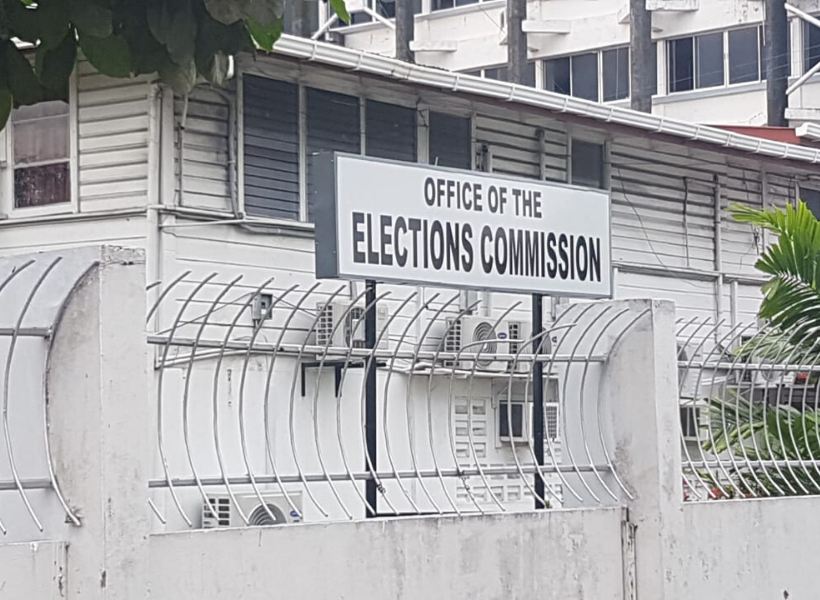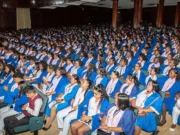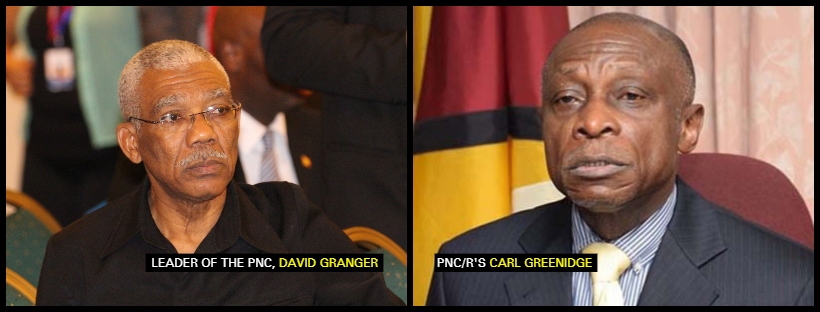The People’s National Congress Reform (PNC/R) has sought to label one of its long standing members, Mr. Carl Greenidge, as being dishonest and malicious for stating during an exclusive interview with the Guyana Standard last week that the party is suffering from a leadership crisis.
Greenidge’s comments came on the heels of heavy criticisms his party has and continues to receive for sidlining himself as well as other members such as Volda Lawrence, Aubrey Norton, Christopher Jones, Amna Ally, and Basil Williams to represent the party in the parliamentary opposition. Greenidge said that senior PNC/R members, both present and past, have contacted him with a number of concerns about the list while noting that all were concerned about the selection process which seems to be shrouded in mystery.
In spite of Greenidge’s contentions, the Party has made it pellucid that it utilized a transparent process for the selection of its parliamentary representatives while noting that those who suggest otherwise are simply acting in a wicked and spiteful manner.
See below for the Party’s full statement.
The People’s National Congress Reform (PNCR) is obliged to respond to the article published in the Guyana Standard, 23rd August ― PNCR is suffering a leadership crisis ― Greenidge. The PNCR considers that the opinions expressed in the article are fallacious and malicious.
The PNCR, a sixty-three-year-old political party, is governed by long-established and robust institutions – its Constitution, Congress, General Council, Central Executive Committee and its architecture of regions, districts and groups. Meetings of the Congress, General Council and Central Executive Committee (CEC) have to be notified and are chaired by the Party’s Chairman. There have been two meetings of the CEC since 2nd March, despite COVID-19 restrictions which prevented some members from the hinterland from attending, to examine electoral issues among other matters.
The Party adheres to the articles of its Constitution and the decisions of its Congress, General Council and Central Executive Committee. Actions taken by the Party and its leadership are not capricious but are in accordance with the Party’s institutions or have been directed by the appropriate Party organs.
The extraction of names by Representative of the List, Mr. David Granger, for the National Top-Up and Geographic lists for the National Assembly and for the ten Regional Democratic Councils arising from the recent General and Regional Elections, was not done arbitrarily or unilaterally. The process was comprehensive and consultative. It was compliant with the Constitution of the Cooperative Republic of Guyana and the Representation of the People Act and was guided by the advice and recommendations of the elected representatives of the Party’s regions, districts and groups in their respective constituencies.
It would be dishonest for anyone to suggest that the nomination process was conducted “…in defiance of the rules and spirit of the Constitution of the Party.”
It would be dishonest for anyone to guess about the agenda of matters that were discussed at meetings of the Central Executive Committee without presenting evidence and without being aware of the criteria and conditions underlying the candidates’ selection process.
It would be dishonest for anyone to suggest that members have been prevented from engaging in discussion or from asking questions pertaining to any matter placed on the agenda of the CEC, especially with regard to the nomination process.
It would be dishonest for anyone to suggest that the persons extracted from the list to represent A Partnership for National Unity (APNU), in the 12th Parliament are “…neither representative of the APNU or of the elected Party executive.”
It is craven and malevolent for persons who feel that they have been disqualified to attempt to discredit those who qualified to be selected. It is slanderous and intentionally damaging to the good reputation of hard-working candidates to insinuate that they were “…the subject of public criticism ranging from ethical issues to incompetence.”
Several senior Party members, some of whom served more than three terms (or more than fifteen years) in the National Assembly, will not return to the 12Th Parliament. These include the Party Leader, David Granger; Chairman, Volda Lawrence; Vice-Chairman, George Norton; Treasurer, Ronald Bulkan; General Secretary, Amna Ally and Executive Members, John Adams; Richard Allen; Simona Broomes; Winston Felix; Barbara Pilgrim; Jennifer Wade; Basil Williams and Mervyn Williams, among others.
Some leaders who began their parliamentary service more than two decades ago were afforded the opportunity to gain experience to serve effectively in the National Assembly. These leaders will now mentor and monitor others just as they were educated by the example of earlier leaders who they replaced. Party leaders are expected to instruct and inspire, not incite and instigate their constituents.
The PNCR is not suffering from a ‘leadership crisis’ as has been suggested by failed, former aspirants to leadership positions. The Party Leader is elected transparently by the Congress which is free to retain or replace him at future congresses. While he is leader, he is responsible for the general political direction of the Party between Congresses and shall be the chief spokesman on the Party’s policy. The Leader exercises the rights, and fulfills all the duties and obligations, of the Central Executive Committee between meetings of the Committee and may take any action in keeping with the Party’s general policy.
The PNCR has made a bold step forward into the future by renewing and revitalising its leadership at all levels in a constitutional manner. The parliamentary list is balanced by gender, geography and generation. Women now constitute 42 per cent of its members. The average age of new entrants to the 12th Parliament is about 42 years, compared to 62 years of those who have left after serving in the 11th Parliament.
Candidates represent a wide cross section of our country. They were required to satisfy the nomination criteria – which include citizenship, competence, community service, constituency representation, ethnic balance, gender balance, generational balance, geographical balance, occupational balance and political party membership.
These criteria were derived from a set of ‘core principles‘ which were hammered out and agreed, voluntarily, by the partners in A Partnership for National Unity – Guyana Action Party; Justice For All Party; National Front Alliance; People’s National Congress Reform and Working People’s Alliance. They form part of the Cummingsburg Accord (Revised) between APNU and Alliance For Change (AFC) and are known to all.
Indeed, it was recently shown in the Official Gazette that the APNU list conformed most closely to the requirements for gender balance, generational balance and geographical balance. Candidates who have been selected are more than competent to represent their constituency, Party and the Coalition in the National Assembly.
It would be dishonest for anyone who wishes to criticize the Party to do so without understanding the PNCR’s Constitution and the APNU’s current agreed criteria. There has been nothing in the nomination and selection process that has been unconstitutional. Critics should not hide behind vague comments such as the process “…leaves a lot to desired” without providing evidence.
It is astonishing that anyone who wishes to boast of being a member of the PNCR could be so ignorant of the Constitution and would publish such malicious, ridiculous and vacuous statements that are devoid of evidentiary validation.
The PNCR asserts that its institutions have been an assurance for over six decades that no personality, however self-absorbed and egotistical, is more important than the Party. The PNCR relies on the transparency of its institutions to publish the truth in order to disprove the duplicity of insidious press engagements.











